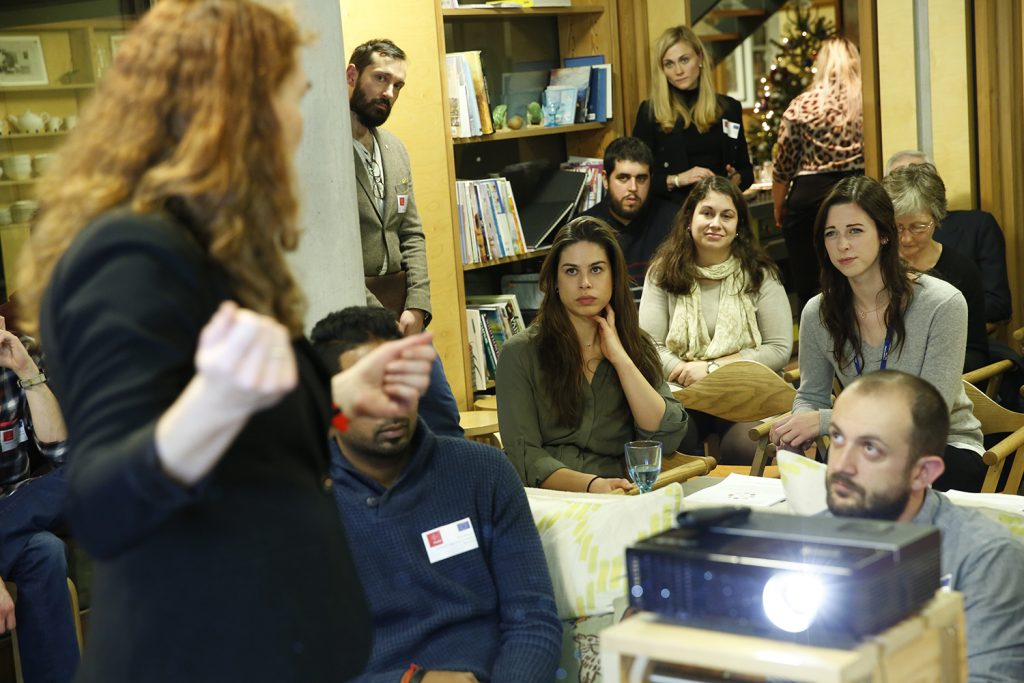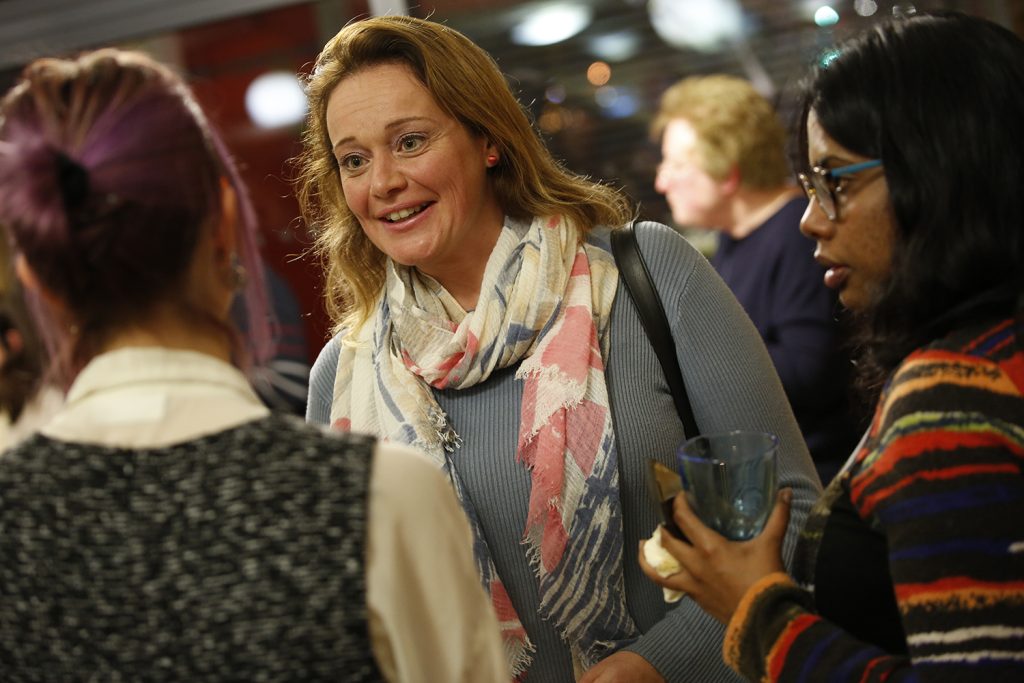Kelly Gleason, Lead Nurse at the Cancer Research UK Imperial Centre shares her reflections on starting and running a Science Café; a safe space to bring together researchers, clinicians and members of the public to learn and share knowledge about cancer research 
How it all started?
In 2010 I attended the International Association of Clinical Research Conference in the USA. That year, the keynote speaker, Mr Charles Sabine, gave a very powerful and emotive talk about Huntington’s disease and the importance of research in this area.
Mr Sabine had lost his father to Huntington’s disease; his brother was in the advanced stages of the illness and he himself had chosen to have genetic testing to find that he too carried the gene for Huntington’s. This news was the catalyst that caused him to give up his work as a war reporter and travel the world raising awareness of Huntington’s disease and the importance of research in this area.
There were hundreds of people in the room listening to his keynote speech but one thing he said made me feel he was speaking directly to me. He said, “we will never deliver excellence in research until we get scientists and patients in the same room”. Those words hit hard. I knew he was right. I knew that patients had to be the focus of research no matter how far removed that research was from the patient bedside. To really understand each other, researchers and patients needed a safe place to learn about each other.

On my way back to the UK, I reflected on Mr Sabine’s message. I thought about our organisation, the Cancer Research UK Centre at Imperial College, London (CRUK, ICL) and I asked myself how I could create a space for our researchers and patients to come together in dialogue.
This is how the Imperial Science Café began; the cafe was my first attempt at creating a safe space to bring together patients and scientists so that they could better understand each other and learn to work together to enhance cancer research at Imperial
For the last decade, we have hosted several cafes every year at our local Maggie’s Centre. These events took place between six and eight in the early evening. Speakers presented solo, in pairs or as a panel. Presentations lasted between twenty and thirty minutes with the remaining time protected for questions and discussion. Presenters shared their research with or without slides; they chose a presentation style that best suited them in this environment. We hosted nine to thirty-five attendees at individual events; this group size created an intimate environment conducive to dialogue between our researchers, patients, and the public.
What people shared after attending science cafes:
In 2019, as part of the People Like You project, we organised a series of cafes around personalisation. We used this opportunity to formally evaluate our science café platform. Here is some of the feedback shared by attendees at these events:
Some people reported that they felt that they learned something new about a specific area of research.
Others stated they had learned about research in general, for example how long it takes to develop a new drug, what is a randomised clinical trial, or how data can be misinterpreted when reporting results and how this can be avoided.
Others enjoyed hearing from different perspectives whether that be an oncologist, a surgeon, a scientist, a nurse, a patient, an engineer, or a physicist.
 One woman said that attending a science café is like peaking behind the curtain to understand what takes place backstage.
One woman said that attending a science café is like peaking behind the curtain to understand what takes place backstage.
People also said enjoyed hearing about success stories such as how a discovery in a lab at Imperial led to the development of a drug in a phase 1 clinical trial.
One person commented that the audience asked interesting questions that enriched the discussion. A member of staff commented that they enjoyed listening to patients so actively participating in the discussion.
Some people left an event simply feeling inspired that such exciting research was taking place in their own hospital.
The surprising things we learned through a decade of running a science café:
Through the evaluation of the café platform, we learned that science cafes have helped bridge the gap between researchers and NHS delivery staff and help both groups better understand each other and how they contribute to better health for patients in different ways. As the audience expanded to include our NHS colleagues who worked alongside us in clinics and on the ward, we began to see we were one team.
We also learned that cafes are a good place to let attendees know about opportunities to be more involved in research at Imperial by joining for example .
We became aware that attending science cafes helped some people with a personal experience of cancer process their own diagnosis and treatment.
Over time we witnessed a natural evolution of the platform which provided researchers with opportunities to involve the public in future research projects. The dialogue at events with patients and the public began to inform their next steps in the research process.
The café platform is a great place for students to learn to communicate their work to a lay audience and to value of public involvement in research. The audience in turn enjoy shaping not only research but the researchers of tomorrow.
If you are interested in starting your own Science Café, you can find further details on setting-up and running a Science Café in the associated guidance document developed in addition to this blog. The guidance outlines the practicalities of setting up and running a Science Cafe, including advertising, format of the sessions, style of presentations as well as considerations needed such as setting your intentions for the Café and creating a safe environment.
You can access the associated guidance document here.

This blog entry has been written by:
Kelly Gleason – the CRUK Senior Research Nurse at Imperial College London. She manages the translational research team working in our hospitals, provides education and training for the research delivery teams, and coordinates the Patient and Pubic Involvement Group and activities.
